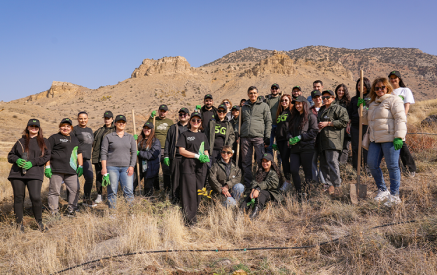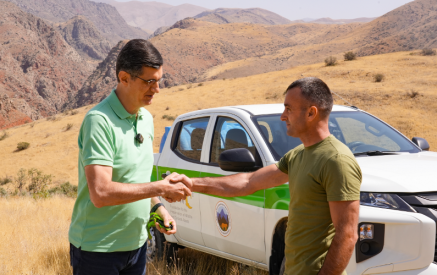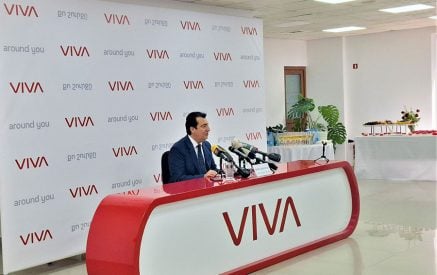For years, Viva-MTS and the Foundation for the Preservation of Wildlife and Cultural Assets (FPWC) have implemented several infrastructure development projects in the village of Arpi, located along the Yerevan-Goris highway. Initially, central and secondary roads were illuminated, and then – a 1.7 km section of the M2 interstate highway, passing through the village.
In order to solve the existing problems and to support the community, the partners have pursued an optimal solution: they reinforced the traffic lights along the village-passing highway, and provided the replaced 48 LED lights to the community. They can be used to illuminate other areas or for modernization.
The heavy M2 interstate highway splits the village into two. The 48 of the 60-watt LED headlights installed back in 2020 were replaced by 120-watt ones, ensuring brighter illumination. The system is now functioning; it is operated automatically. The nighttime illumination of the section has significantly improved. Both residents and drivers say the solution has proved effective.
Read also
“The newly installed LED headlights are efficient, showing a noticeable difference from the older ones: they provide higher illumination. The system turns on automatically, without human interventions. The removed headlights are stored with some of them being used in other settlements, either for setting up street illumination systems or replacing faulty headlights,” Razmik Vardanyan, the administrative head of the village of Arpi of Areni community, noted.
The results of the project implemented within the partnership between Viva-MTS and the Foundation for the Preservation of Wildlife and Cultural Assets provides a lasting and targeted impact. This consistency is important for energy conservation, environmental preservation, community resource saving, as well as human safety. Arpi is one of the villages in Vayots Dzor, where bears regularly appear in the territory of human settlements. Infrastructure development, along with all the mentioned benefits, ensures proper living conditions for the residents of remote regions.

























































